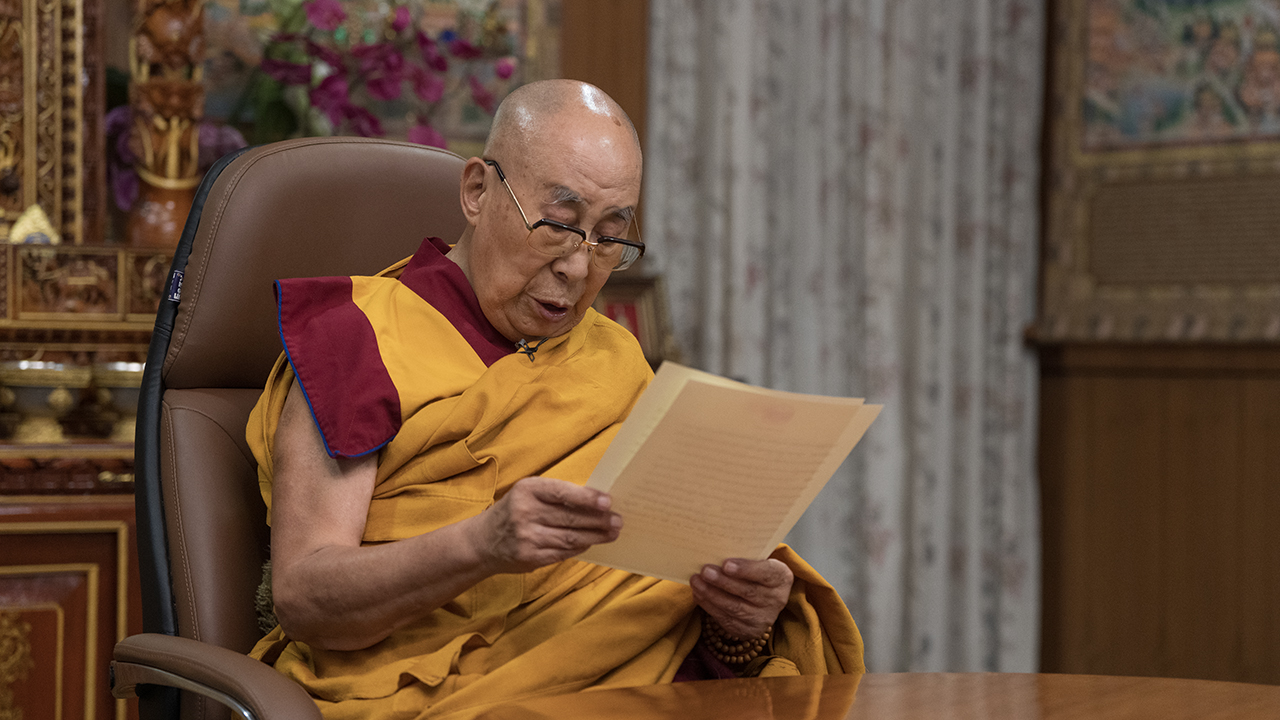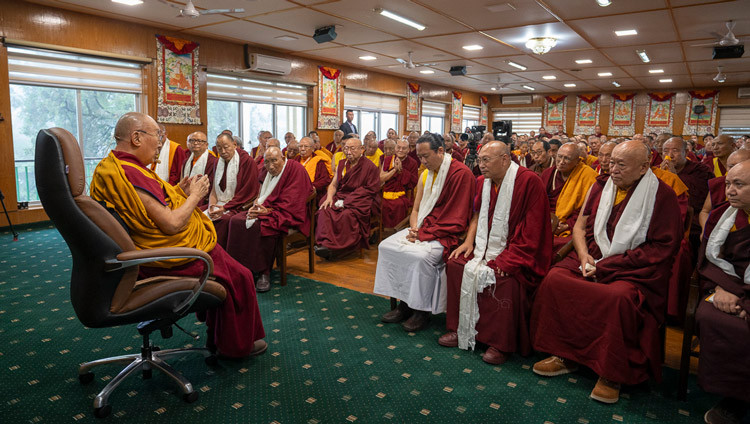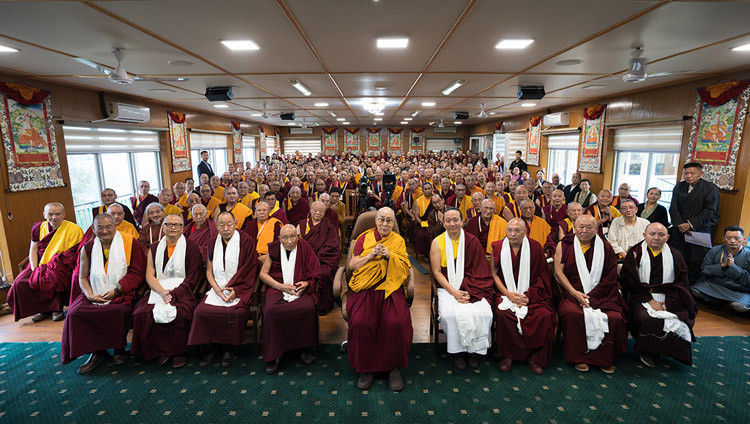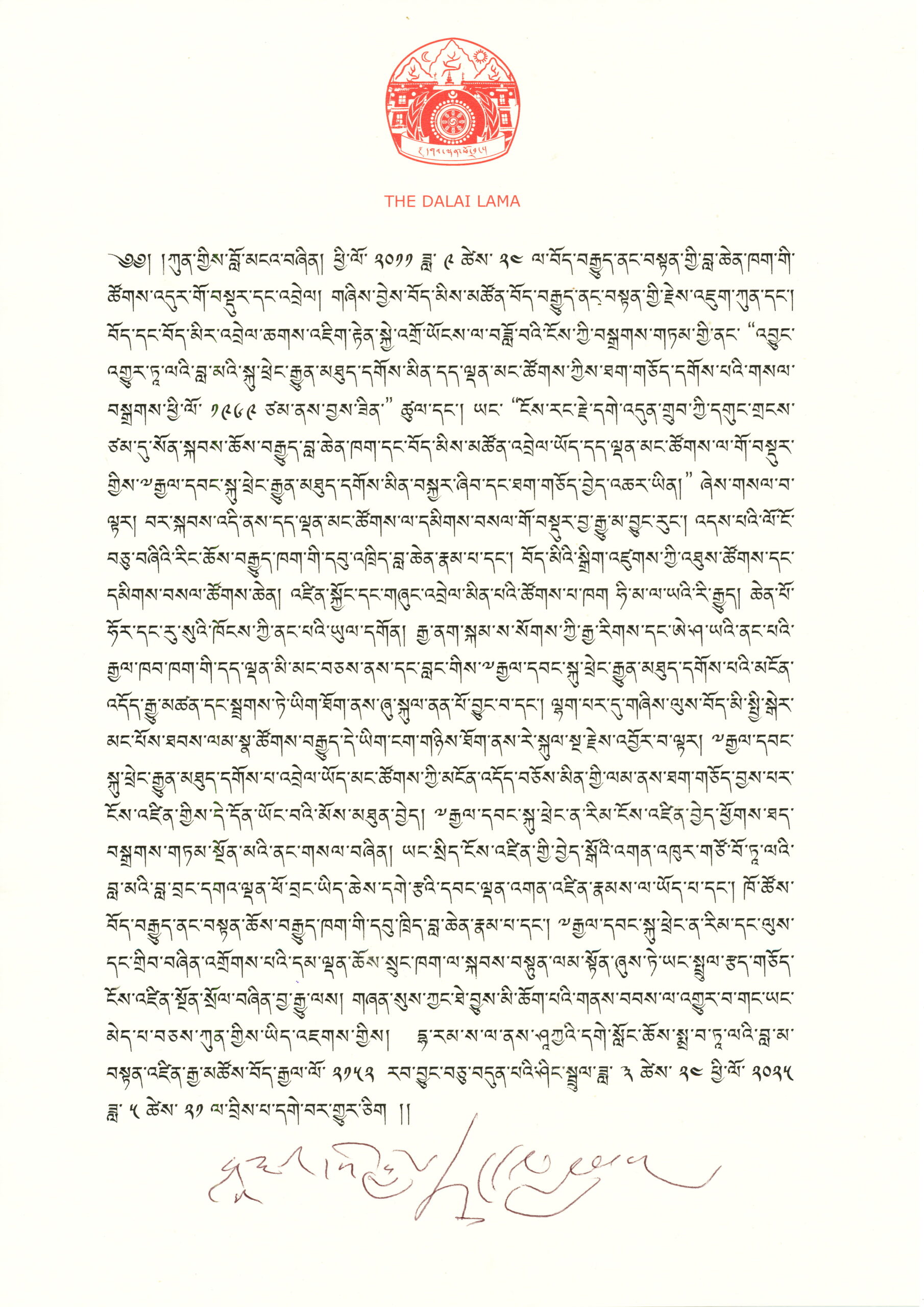
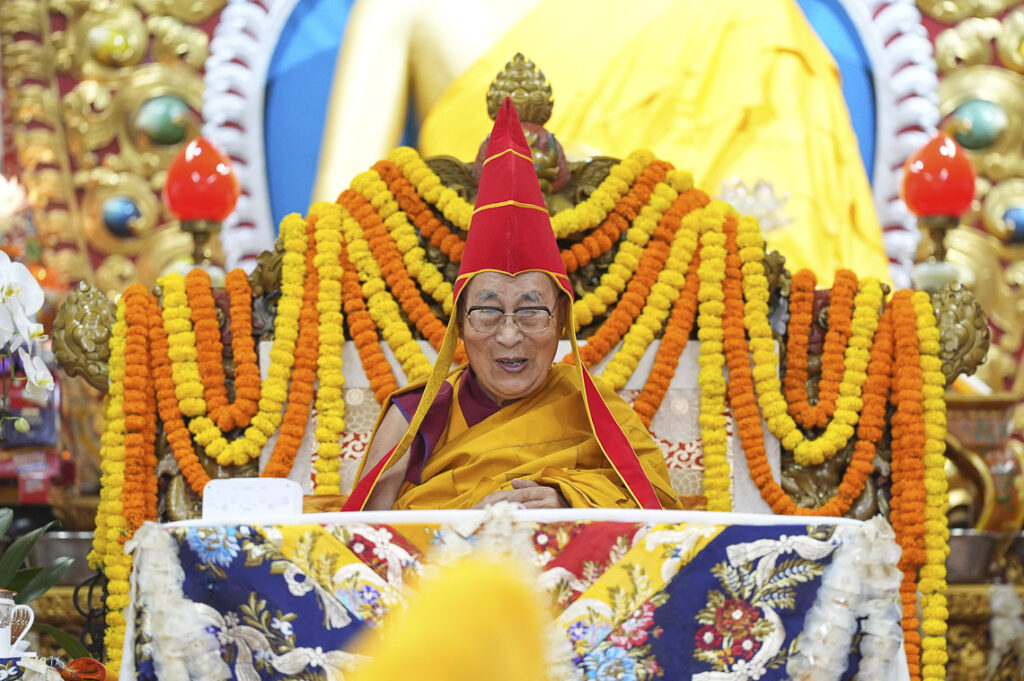
The Next Incarnation and the Future of the Dalai Lama Institution
Since 1969, His Holiness the Dalai Lama has consistently stated that the continuation of the Dalai Lama institution should be decided by the Tibetan people, as well as the Mongolian and Himalayan communities who share this spiritual tradition. He emphasized that it is not a matter for him alone to decide, but one that belongs to the collective will of the people.
However, in the absence of clear and publicly agreed-upon guidelines, there is a growing concern that if the public expresses a strong desire to recognize a future Dalai Lama, the process could be manipulated by political forces seeking to serve their own interests.
To safeguard the integrity of the tradition, on September 24, 2011, His Holiness issued an official statement affirming his sole authority in determining the conditions of his own rebirth and how any future reincarnation should be recognized. He further declared that he will make a formal consultation process—at around the age of ninety—with leading lamas of Tibet’s Buddhist traditions, the Tibetan public, and others concerned with the preservation of Tibetan Buddhism. This process would assess whether the institution of the Dalai Lama should continue after him.
On July 2, 2025, at the age of ninety, during the 15th Tibetan Religious Conference held in Dharamshala and attended by over 115 senior lamas, tulkus, and monastic representatives, His Holiness officially affirmed the continuation of the institution of the Dalai Lama. In his public statement, he explained:
“Although I have had no public discussions on this issue, over the last 14 years, leaders of Tibet’s spiritual traditions, members of the Tibetan Parliament-in-Exile, participants in a Special General Body Meeting, members of the Central Tibetan Administration, NGOs, Buddhists from the Himalayan region, Mongolia, Buddhist republics of the Russian Federation, and the Buddhists in Asia—including mainland China—have written to me with reasons, earnestly requesting that the institution of the Dalai Lama continue. In particular, I have received messages through various channels from Tibetans in Tibet making the same appeal. In accordance with these requests, I am affirming that the institution of the Dalai Lama will continue.”
His Holiness further reiterated that the process for recognizing his next incarnation had already been clearly outlined in the 2011 statement. He emphasized that the responsibility for this sacred task rests solely with the Gaden Phodrang Trust, the official office of the Dalai Lama. The Trust will consult with the heads of Tibet’s Buddhist traditions and with trustworthy, oath-bound Dharma Protectors connected to the Dalai Lama lineage. The procedures of search and recognition will follow established spiritual traditions.
“I hereby reiterate that the Gaden Phodrang Trust has sole authority to recognize the future reincarnation; no one else has any such authority to interfere in this matter.”
This decisive and historic affirmation ensures that the future of the Dalai Lama institution remains grounded in Tibetan spiritual tradition, free from external interference, and aligned with the collective will of the Tibetan people and the broader Buddhist world.
